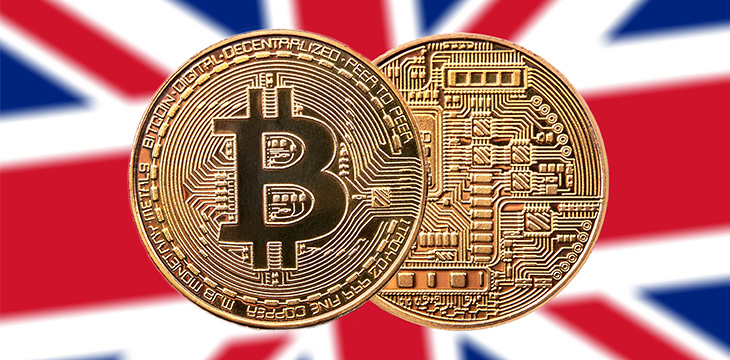|
Getting your Trinity Audio player ready...
|
New stories about central bank digital currencies (CBDCs) just keep coming, and this week we learned that the United Kingdom appears poised to jump on the CBDC bandwagon.
U.K. Treasury insiders have confirmed that a task force has been established to explore how the CBDC, which some are dubbing ‘Britcoin,’ might work. The task force will report its findings to Chancellor Rishi Sunak by the end of the year.
According to the sources who leaked the story to the Daily Mail, the plan has greater enthusiasm among treasury members than it does with bankers.
Concerns and enthusiasm
According to the same sources, there is both opposition to and enthusiasm for this project within the British government.
Some see the obvious benefits of a fully digital currency. Faster transfers, the ability for the central bank to distribute “helicopter money,” reduced friction and costs for small businesses, and the biggest modernization of the British financial system in centuries have some decision-makers enthusiastic about the potential of a digital Pound Sterling.
On the other side of the debate, some are concerned that issuing a CBDC could destabilize the economy in various ways. More conservative British bankers are worried about the rapid changes the new digital currency might bring about from increased inflation to eating into retail bank reserves.
How would Britcoin work?
As this is only at the exploratory stage, details on the project are not readily available. However, we can look at other recent stories to infer how this CBDC might work.
Like most other CBDCs, it will likely require a digital wallet to store and use. Britain has recently experienced a political row over the potential issuance of vaccine passports, so it’s unclear how willingly the British public would accept a digital wallet if it were to be issued by the U.K. government. The issuance of any wallet linked to digital IDs could also inflame already simmering political tensions.
We can also look to the EU’s more developed plan for some idea as to how the British CBDC might work. The EU has made it clear that third countries, which Britain is after Brexit, will be monitored closely for how strict their AML/KYC rules are. As a major trading partner with the EU, it’s likely that the U.K. will need to adopt standards that are in alignment with the EU’s. Therefore, despite potential political opposition, digital wallets will probably have to be linked to digital IDs in some way.
Sunak denies CBDC will replace cash
Despite the post-Brexit task force on Innovation, Growth, and Regulatory Reform calling for a digital pound, the Chancellor denies that a decision has been made. In a recent statement, Sunak dismissed the idea that the digital currency would replace cash. He said that any CBDC would “complement cash” rather than replace it.
No, we're not replacing cash with 'Britcoin'🤨https://t.co/Xnvmo1uoEG
— Rishi Sunak (@RishiSunak) July 26, 2021
This statement will go a long way to easing the fears many have about the implications for privacy and liberty in the age of CBDCs. At least, it will do so for those who believe Mr. Sunak.
Could Britain become a cashless society?
Even before this story about the digital pound, Britain was well on its way to becoming a cashless society. For example, the British Retail Consortium recently reported that there are 10,000 fewer ATMs in the country as compared to 2017 and 3,000 fewer bank branches than in 2015. The COVID-19 pandemic has only sped up the transition to cashless payments in the country. Trade association Finance U.K. reported that cash transactions were down 35% in 2020 alone.
A recent survey by Paragon Bank found that 71% of Britons believed they were moving toward a cashless society, and one in three believed they’d be living in a cashless society within five years.
The march towards CBDCs continues
The trend is clear all across the globe. For better or worse, we are rapidly moving toward a cashless world, and all that entails. As the U.K.’s biggest trading partners move to embrace CBDCs and digital IDs, there’s no denying that it will follow. Sunak may claim the decision hasn’t yet been made, but it’s likely just political theatre. Any country that wants to remain relevant will have to innovate and embrace change.
No doubt, this topic will continue to engender vigorous debate. Still, CBDCs now seem inevitable, and strict KYC/AML regulations with digital IDs will almost certainly follow. The BSV enterprise blockchain has been planning for this scenario from day one.
To learn more about central bank digital currencies and some of the design decisions that need to be considered when creating and launching it, read nChain’s CBDC playbook.
Watch: CoinGeek Zurich panel, Digital Technology and the Future of Banking & Financial Services

 02-19-2026
02-19-2026 




